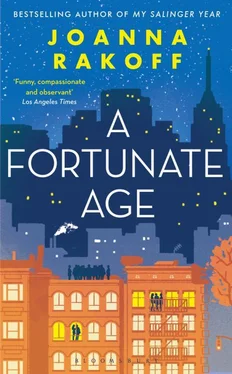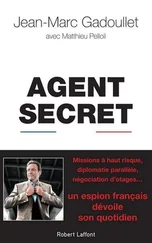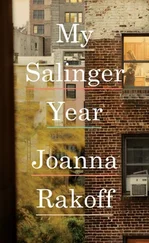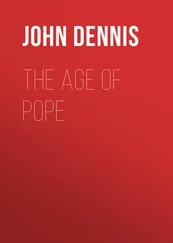Tuck was still speaking, but his words were clumping together in Sadie’s mind, a haze of sound. They were, she realized, with a sudden twist of the gut, the only car on the road. In order to get directions, they would have to stop at one of the menacing buildings—or drive back toward civilization. The bar’s burned coffee—she’d taken just a sip or two—sat acidly in her stomach. She should have eaten after the service. Her mother had said so.
And then, just as suddenly as they’d come upon them, they left behind the silver buildings and found themselves on a bare stretch of asphalt, fields of new grass extending as far as they could see on either side of them. This area must have been clear-cut by the developers, Sadie thought, who’d run out of money. Or tenants. Long Island, she thought, was terribly flat. A terminal moraine. The road here stretched endlessly, infinitely into the distance, a thread of inky black, with the lush sheen of new tar. There was nowhere, nowhere at all, to inquire about the cemetery.
But then—miraculously—they were upon it. First, from the distance, they saw a clump of… something—they knew not what. As they grew closer, they made out the forms of trees and a low stone fence. And soon they were driving past mile after mile of graves, low stones engraved with Stars of David—on both sides of the road—and scanning the area for an entrance. “So many dead Jews,” Tuck marveled, trying for a satiric tone but managing to sound merely sad. Sadie had a grim thought: Soon, we’ll be among them .
“I don’t know if I want to do this,” Tuck said suddenly. “I feel kind of sick. Does it smell like carbon monoxide in here?”
“Not really,” said Sadie. “We’ll be there in a second. We just have to find the right entrance.”
Furiously, Tuck fumbled with his door. “No,” he said. “I want to get out, okay? Now . How do you get the fucking window down? I need a fucking cigarette. Open the fucking window. I need to get out. ” From his side, Tal pressed the appropriate button, but Tuck was pulling at the handle of the door, his face flushed and sweaty.
“Whoa,” said Tal. “Don’t jump out of the car, okay? I’ll stop.”
“No,” said Sadie. “Tal, don’t stop. We’re almost there. Let’s just get there. We’re going to miss the funeral.”
“ No ,” said Tuck. “I can’t do this. Pull the fucking car over. I’m getting out. I can’t go. I—”
“You have to go,” said Sadie. “You’ve come this far. She was your wife. ” But Tal pulled off the road onto a mound of dark, soft earth, just as Tuck wrestled the door open. “I can’t do this,” he shouted, stumbling out of the car, his shoes kicking up sprays of black dirt and clumps of new grass. “ Any of this.”
“Okay,” said Sadie, stepping out of the car. “Okay.”
From afar, a loud humming eclipsed the sounds of Tuck’s raspy breathing. Moments later, a sleek black car sped past them—the first they’d seen in who knew how long.
“That must be them,” said Sadie. “Or some of them.” She raised one hand to her eyes and watched to see where the car would turn. Tuck would be fine in a moment and they would go on to the funeral, though perhaps they would be the first to arrive, the only ones to get off the clogged highway. But the car didn’t turn—it kept going, straight and fast along the spookily straight road, until it disappeared from sight. Tal put his hand in his pocket and gazed questioningly at Sadie, who shrugged. “I guess it wasn’t them,” she said.
“Tuck,” she said. “We really should go.”
“No,” he said. “I’m not going. I’m going home.”
“Home?” she asked. This was too much, this childishness. “How are you going to get home?”
“I don’t fucking know,” he shouted, loosening and pulling off his tie with a violent tug.
“Tuck, come on,” she said, aware that she was using the tone she employed to coax Jack into the bath. “Let’s go. It’s going to be fine.”
But he was already walking off along the shoulder of the road, lighting a cigarette in cupped hands, stumbling with every other step, his shoes sinking into the rich soil. “Fuck you,” he shouted, though it wasn’t clear whether he was addressing Sadie and Tal or the world or the Roths or the mirrored buildings with their hives of drones.
Tal shook his head and looked at Sadie. “Okay,” said Sadie, with a shrug. “Bye.” For a long time they stood, watching his slow progress, then they stepped back into the car, the crack of closing doors impossibly loud on the dead stretch of road, and drove off, west, in the direction of an ocean they couldn’t see. “He’ll be fine,” Tal said, reaching a hand toward her. “He won’t miss it.”
“Okay,” she said again. Tal was right, she knew, and she forced herself to keep her eyes facing forward. But still, she saw him, in the rearview mirror: a small, dark figure, hobbling along the side of the darker road, east toward Queens, and then home to Brooklyn. And for a moment she wished that she could join him.
My most profound thanks to the incomparable Alexandra Pringle, Tina Bennett, Stephanie Koven, Laura Brooke, Amanda Shipp, Alexa von Hirschberg, Brendan Fredericks and Svetlana Katz. I’m hugely grateful to Amy Rosenberg, who read numerous drafts of this novel and offered invaluable edits and insight, and to Andrea Crawford, Ellen Umansky, Kate Bolick, Rachel Scobie, and Stan and Phyllis Rakoff. Thank you, also, to the MacDowell Colony, the Writer’s Room, Raina Kattelson, and Bob, Maeve and Romi Butscher. Last, it’s strange to thank those who can’t say ‘you’re welcome’ in return, but I’m profoundly indebted to three writers: Sylvia Plath, Dawn Powell, and, of course, Mary McCarthy, to whose marvellous novel, The Group , my own is, of course, an homage.
Also available by Joanna Rakoff
My Salinger Year
Twenty-three-year old Joanna Rakoff moved to New York City, taking a job as assistant to the literary agent for J. D. Salinger. Spending her days in the old-fashioned, wood-panelled agency and returning at night to a threadbare Brooklyn apartment, Rakoff precariously balances between glamour and poverty. Tasked with answering Salinger’s fan mail, she finds herself unable to type the agency’s formulaic response and begins writing back.
My Salinger Year is a poignant, keenly observed and irresistibly funny memoir about a pre-digital world on the cusp of vanishing. It is the coming-of-age story of a talented writer and testament to the power of books to shape our lives.
‘Extraordinary… The book is so gripping and funny, you feel sure she had only to twitch her nose to be back there’ Observer
‘In prose that is clear, precise and evocative, Rakoff renders her people and places touchably real’ Independent
‘Like a literary The Devil Wears Prada , this is the story of Joanna Rakoff’s first job in publishing in the ‘80s… an irresistible read’ Harper’s Bazaar
About the Author
Click here to order
Bloomsbury Publishing
An imprint of Bloomsbury Publishing Plc
50 Bedford Square
London
WC1B 3DP
UK
1385 Broadway
New York
NY 10018
USA
www.bloomsbury.com
BLOOMSBURY and the Diana logo are trademarks of Bloomsbury Publishing Plc
First published in 2009 in the US by Scribner, New York
First published in Great Britain 2015
© Joanna Rakoff 2009
Читать дальше












